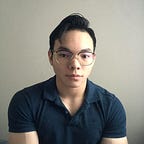Why Vaccine Boosters May Not Solve the Mutating Coronavirus Problem
Humans don’t always win against evolving viruses, but there are reasons to be optimistic
In 1960, Thomas Francis Jr., MD, a professor of epidemiology at the University of Michigan who was the first to isolate the influenza virus in the U.S., published a paper titled “On the Doctrine of Original Antigenic Sin” in the Proceedings of the American Philosophical Society that is pertinent to our understanding of immunological memory to this day.
Sadly, the concept of original antigenic sin (OAS) has not been given the scrutiny it deserves. But as we face the evolving and mutating severe acute respiratory syndrome coronavirus two (SARS-CoV-2), the thing that causes coronavirus disease 2019 (Covid-19), we must again discuss the OAS.
The original antigenic sin (OAS)
Francis’ paper introduces the antigenic structure, a molecular thing that provokes the immune system to make antibodies to bind and neutralize the antigen. The antigen-antibody products are then disposed of in the spleen and liver. And the immune system forms a memory of the antigen.
This memory enables the immune system to deploy antibodies more quickly and efficiently when it sees the same antigen again. We call this immunity toward a particular antigen, usually of microbial origin. Such immunity can be formed naturally via actual infection or artificially via vaccination.
The spike and nucleocapsid proteins of SARS-CoV-2, for example, are antigens. For the influenza virus, its antigens are the hemagglutinin and neuraminidase proteins.
The crux of the professor’s paper is that antibodies generated for a specific influenza virus strain got deployed again even when the person gets infected with another strain. But different strains of influenza viruses have different antigenic structures, requiring different antibodies to neutralize them. So, those “old” antibodies are ineffective against the newer influenza virus strain. To make matters worse, those “old” antibodies also hinder the formation of updated antibodies and immunological memory.
